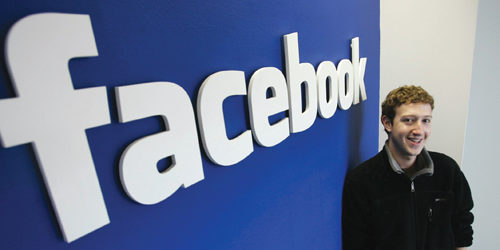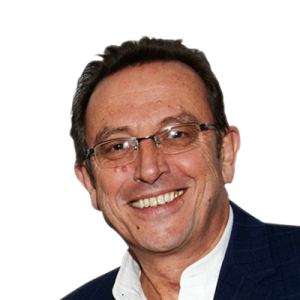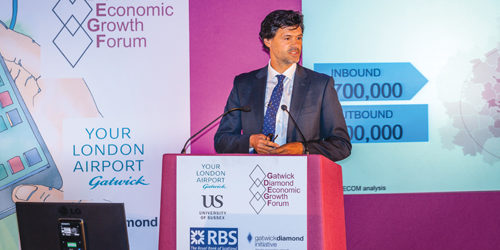
Mark Zuckerberg is one of those incredibly annoying people - 33 years old with the face of a 12 year old and the fifth richest person on the planet, with a bank account showing over $62 billion. These days it seems there is only one way to get there that fast and that is in the digital and online sphere, meaning that if you are not hard at it at the age of 15, you have missed the boat.
Zuckerberg founded Facebook from his dorm at Harvard University in 2004 and it was originally designed as a method of communication for students. Little did he know at the time quite what a behemoth it would become and, one might say, it has become the most socially life-changing invention since the horseless carriage.
He was born in White Plains, New York in 1984 of a dentist Father and a psychiatrist Mother and won prizes at school in maths, astronomy and physics and attended the John Hopkins Centre for Talented Youths summer camp. On his college application he noted he could read and write French, Hebrew, Latin and ancient Greek and was captain of the fencing team.
Whilst the ‘cool’ kids were at the beach chasing girls and tequila, Zuckerberg was at the very uncool summer camp and labelled a prime geek.
His Father aided his rapid programming development by hiring software developer David Newman, to privately tutor his son. Newman quickly claimed him a prodigy and moaned that it was really tough to keep up with him. According to writer Jose Antonio Vargas, “some kids played computer games.
Mark created them.” Zuckerberg himself recalls this period: “I had a bunch of friends who were artists. They’d come over, draw stuff, and I’d build a game out of it.” However, notes Vargas, Zuckerberg was not a typical “geek-klutz”, as he later became captain of his prep school fencing team and earned a classics diploma. Napster co-founder Sean Parker, a close friend, notes that Zuckerberg was “really into Greek odysseys and all that stuff”, recalling how he once quoted lines from the Roman epic poem Aeneid, by Virgil, during a Facebook product conference.
During Zuckerberg’s high school years, he worked under the company name Intelligent Media Group to build a music player called the Synapse Media Player. The device used machine learning to learn the user’s listening habits, which was posted to Slashdot and received a rating of 3 out of 5 from PC Magazine.
Vargas noted that by the time Zuckerberg began classes at Harvard, he had already achieved a “reputation as a programming prodigy”. He studied psychology and computer science and belonged to Alpha Epsilon Pi and Kirkland House. In his sophomore year, he wrote a programme that he called CourseMatch, which allowed users to make class selection decisions based on the choices of other students and also to help them form study groups. A short time later, he created a different programme he initially called Facemash that let students select the best looking person from a choice of photos. According to Arie Hasit, Zuckerberg’s roommate at the time, “he built the site for fun”. Hasit explains “We had books called Face Books, which included the names and pictures of everyone who lived in the student dorms. At first, he built a site and placed two pictures of two males and two females. Visitors to the site had to choose who was “hotter” and according to the votes there would be a ranking.
The site went up over a weekend, but by Monday morning, the college shut it down, because its popularity had overwhelmed one of Harvard’s network switches and prevented students from accessing the Internet. In addition, many students complained that their photos were being used without permission.
Zuckerberg apologised publicly, and the student paper ran articles stating that his site was “completely improper.”
The following semester, in January 2004, Zuckerberg began writing code for a new website. On February 4, 2004, Zuckerberg launched “Thefacebook”, originally located at thefacebook.com. Six days after the site launched, three Harvard seniors accused Zuckerberg of intentionally misleading them into believing he would help them build a social network called HarvardConnection.com, while he was instead using their ideas to build a competing product. The three complained to The Harvard Crimson, and the newspaper began an investigation in response.
Following the official launch of the Facebook social media platform, the three filed a lawsuit against Zuckerberg that resulted in a settlement. The agreed settlement was for 1.2 million Facebook shares that were worth US$300 million at Facebook’s IPO. Zuckerberg dropped out of Harvard in his sophomore year to complete his project. In January 2014, he recalled: “I remember really vividly, you know, having pizza with my friends a day or two after I opened up the first version of Facebook and at the time I thought, “You know, someone needs to build a service like this for the world.” But I just never thought that we’d be the ones to help do it. And I think a lot of what it comes down to is we just cared more”
Facebook was born and has been a hard to control bucking bronco ever since. Facebook was so well received that is took on a life of its own and Zuckerberg’s team have been trying to get ahead of the game ever since.
In a 2011 interview with PBS shortly after the death of Steve Jobs, Zuckerberg said that Jobs had advised him on how to create a management team at Facebook that was “focused on building as high quality and good things as you possibly can”.
In a public Facebook post, Zuckerberg launched the Internet.org project in late August 2013. Zuckerberg explained that the primary aim of the initiative is to provide Internet access to the 5 billion people who are not connected as of the launch date. Using a three-tier strategy, Internet.org will also create new jobs and open up new markets, according to Zuckerberg. He stated in his post: “The world economy is going through a massive transition right now. The knowledge economy is the future. By bringing everyone online, we’ll not only improve billions of lives, but we’ll also improve our own as we benefit from the ideas and productivity they contribute to the world. Giving everyone the opportunity to connect is the foundation for enabling the knowledge economy. It is not the only thing we need to do, but it’s a fundamental and necessary step.”
A movie based on Zuckerberg and the founding years of Facebook, The Social Network was released on October 1, 2010, and starred Jesse Eisenberg as Zuckerberg. After Zuckerberg was told about the film, he responded, “I just wished that nobody made a movie of me while I was still alive.” Also, after the film’s script was leaked on the Internet and it was apparent that the film would not portray Zuckerberg in a wholly positive light, he stated that he wanted to establish himself as a “good guy”. The film is based on the book The Accidental Billionaires by Ben Mezrich, which the book’s publicist once described as “big juicy fun” rather than “reportage”. The film’s screenwriter Aaron Sorkin told New York magazine, “I don’t want my fidelity to be the truth; I want it to be storytelling”, adding, “What is the big deal about accuracy purely for accuracy’s sake, and can we not have the true be the enemy of the good?”
Upon winning the Golden Globe Award for Best Picture in 2011, producer Scott Rudin thanked Facebook and Zuckerberg “for his willingness to allow us to use his life and work as a metaphor through which to tell a story about communication and the way we relate to each other.” Sorkin, who won for Best Screenplay, retracted some of the impressions given in his script:
“I wanted to say to Mark Zuckerberg tonight, if you’re watching, Rooney Mara’s character makes a prediction at the beginning of the movie. She was wrong. You turned out to be a great entrepreneur, a visionary, and an incredible altruist.”
On January 29, 2011, Zuckerberg made a surprise guest appearance on Saturday Night Live, which was being hosted by Jesse Eisenberg. They both said it was the first time they ever met. Eisenberg asked Zuckerberg, who had been critical of his portrayal by the film, what he thought of the movie.
Zuckerberg replied, “It was interesting.” In a subsequent interview about their meeting, Eisenberg explains that he was “nervous to meet him, because I had spent a year and a half thinking about him. Mark has been so gracious about something that’s really so uncomfortable. The fact that he would do SNL and make fun of the situation is so sweet and so generous. It’s the best possible way to handle something that, I think, could otherwise be very uncomfortable.
Zuckerberg’s attention had now been drawn to politics, with rumours of his intention to run for President of the United States.
He has never revealed his own political views: some consider him a conservative, while others consider him liberal. In 2013, Zuckerberg hosted his first ever fundraising event for New Jersey Governor Chris Christie. Zuckerberg’s particular interest on this occasion was education reform, and Christie’s education reform work focused on teachers unions and the expansion of charter schools. Later that year, he hosted a campaign fundraiser for Newark mayor Cory Booker, who was running in the 2013 New Jersey special Senate election. In September 2010, with the support of Governor Chris Christie, Booker obtained a US$100 million pledge from Zuckerberg to Newark Public Schools. In December 2012, Zuckerberg donated 18 million shares to the Silicon Valley Community Foundation, a community organisation that includes education in its list of grant-making areas.
Zuckerberg led the launch of a lobbying group called FWD.us. The founders and contributors to the group were primarily Silicon Valley entrepreneurs and investors, and its president was Joe Green, a close friend of Zuckerberg. The goals of the group include immigration reform, improving the state of education in the United States, and enabling more technological breakthroughs that benefit the public, yet it has also been criticised for financing ads advocating a variety of oil and gas development initiatives, including drilling in the Arctic National Wildlife Refuge and the Keystone XL pipeline. In 2013, numerous liberal and progressive groups, agreed to either pull their Facebook ad buys or not buy Facebook ads for at least two weeks, in protest of Zuckerberg ads funded by FWD.us that were in support of oil drilling and the Keystone XL pipeline, and in opposition to Obamacare among Republican United States senators who back immigration reform.
When questioned about the mid-2013 PRISM scandal at the TechCrunch Disrupt conference, Zuckerberg stated that the U.S. government “blew it.” He further explained that the government performed poorly in regard to the protection of the freedoms of its citizens, the economy, and companies. In January 2017, Zuckerberg criticised Donald Trump’s executive order to severely limit immigrants and refugees from some countries.
It would appear that the election of Donald Trump to the Oval Office has inspired him to move forward with his own political beliefs and, with his utter domination of the digital space and sufficient cash in the bank, his ability to bankroll his own campaign is not in doubt.
At the start of the year, he embarked on a tour of every state in the US, saying he wanted to better understand how peoples’ lives are being changed by globalisation and technology. The tour, on which he has been meeting groups from sports teams to church congregations, sparked speculation that he might be considering running for president.
He wrote a 6,000-word letter, which some called a Facebook manifesto, about how he wants the platform to improve the “global community” by making it safer, better informed and more civically engaged.
First he will have to deal with the most pressing problem that Facebook faces, that of an increasing number of Western governments demanding that the company act against terrorist extremism, fake news, under-age porn and cyber bullying that plague the online space. It would appear that his sheltered early life did not allow him to look forward to the depraved wickedness that would swamp Facebook and now the company is struggling to police the system before legislation is passed to force them to do so. And here lies the problem. With 2 billion users every month, five new profiles created every second, 83 billion fake profiles and 300 million images uploaded per day, this is a problem of massive proportions. Safeguards built in when the system was designed might have been able to control this but retrograde solutions are nigh on impossible.
The use of Facebook can have psychological effects, including feelings of jealousy and stress, a lack of attention, and social media addiction, in some cases comparable to drug addiction.
Facebook’s company tactics have also received prominent coverage, including electricity usage, tax avoidance, real-name user requirement policies, censorship and its involvement in the United States PRISM surveillance programme.
Facebook uses a complicated series of shell companies in tax havens to avoid paying billions of dollars in corporate tax. For example, in 2011, Facebook paid £2.9m tax on £840m profits, no tax in 2012, no tax in 2013, and £4,327 in 2014 on hundreds of millions of pounds in UK revenues which were transferred to tax havens. Facebook routes billions of dollars in profits using the Double Irish and Dutch Sandwich tax avoidance schemes to bank accounts in the Cayman Islands.
In 2016, the U.S. Department of Justice filed a petition in the U.S. District Court in San Francisco, asking for a court order to enforce an administrative summons issued to Facebook, Inc., under Internal Revenue Code section 7602, in connection with an Internal Revenue Service examination of Facebook’s year 2010 U.S. Federal income tax return.
Due to allowing users to publish material by themselves, Facebook has come under scrutiny for the amount of freedom it gives users, including copyright and intellectual property infringement, hate speech, incitement of rape, terrorism, fake news, and crimes, murders and violent incidents live-streamed through its Facebook Live functionality.
Facebook was recently shaken by allegations that it could have influenced the election by accelerating the spread of fake news, much of which supported Donald Trump, and creating filter bubbles, where voters were not shown news beyond their own viewpoint.
The platform has been banned by several governments, including Syria, China, and Iran but this originates from their desire to control the population rather than their outrage. So the company is beset with problems but if you think they are going anywhere soon, you would be sorely mistaken. The Facebook generation is here and life will never be quite the same again. I am sure the same worries were voiced when the first car scared the living daylights out of a horse, the first plane roared across the sky and the first computer relieved us all of having to use tipex.
There can be little doubt that this genius multi-billionaire has good intentions and has voiced his intention to give 99% of his money away to good causes. In the two hours it has taken me to write this profile he has earned $2.5 million, so perhaps he had better hurry as he is making it faster than he can give it away. Proof, if proof were needed, that geeks are now cool.






